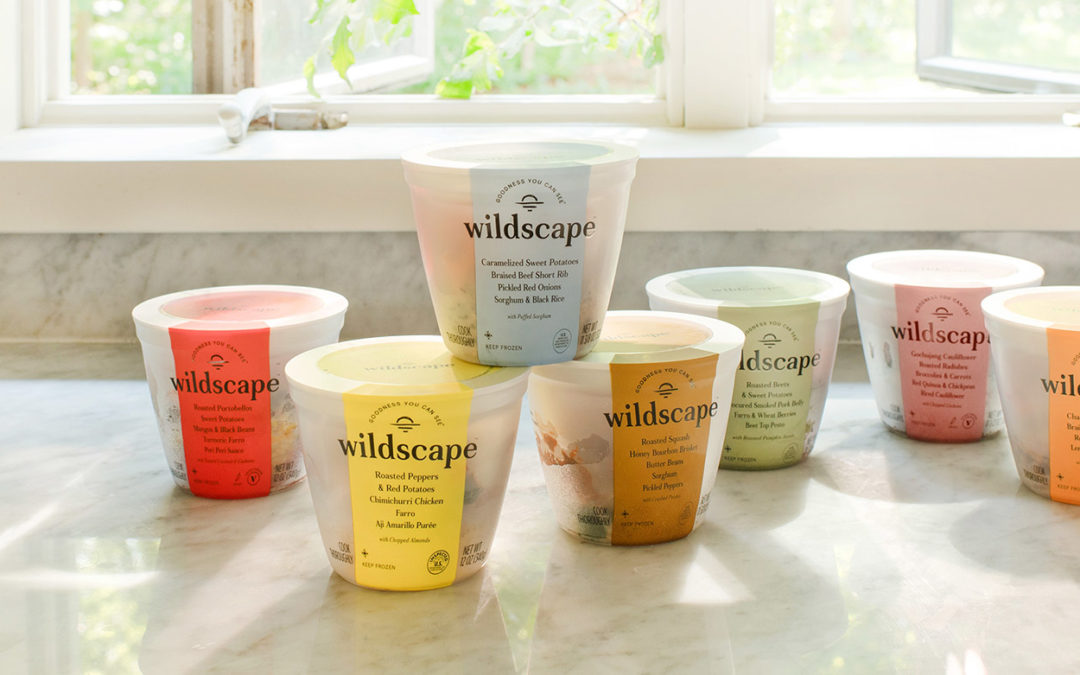Nestle is piloting a handcrafted-positioned, premium frozen meals brand called Wildscape in the USA, and has acquired Sweet Earth Foods, a plant-based foods manufacturer, in September, in order to enter the plant-based foods segment, which is growing by double digits and expected to become a $5 billion market by 2020.
These moves are intended to respond to new consumer trends, including artisanal, natural, convenient, and ethnic. But most of all, they symbolize the re-incarnation of US frozen meals.
Sweet Earth’s frozen meals, burritos, breakfast sandwiches, and chilled plant-based burgers and proteins are sold in more than 10,000 stores, including independent natural grocers, Whole Foods, Target, Kroger and Walmart.

Sweet Earth Foods
Nestle also made strides in its existing portfolio, growing through re-branding.
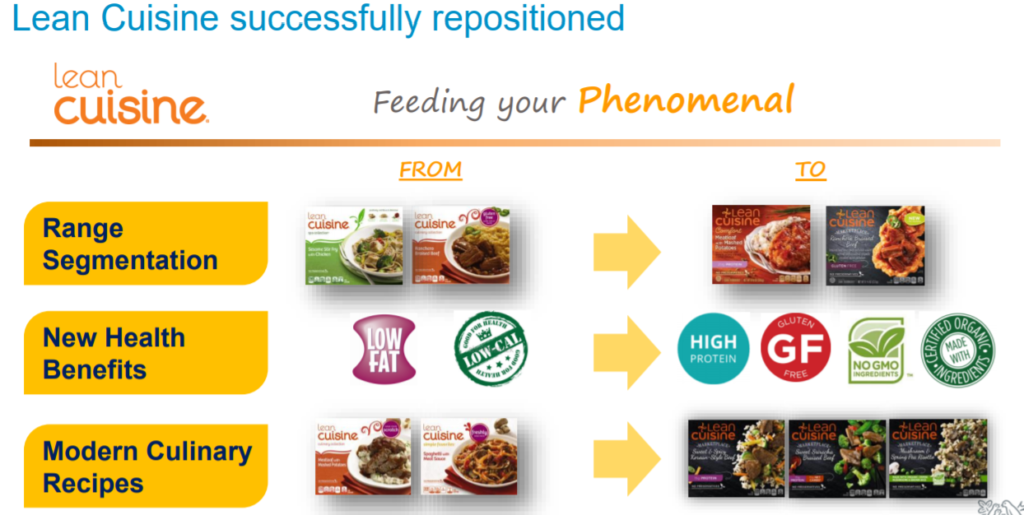
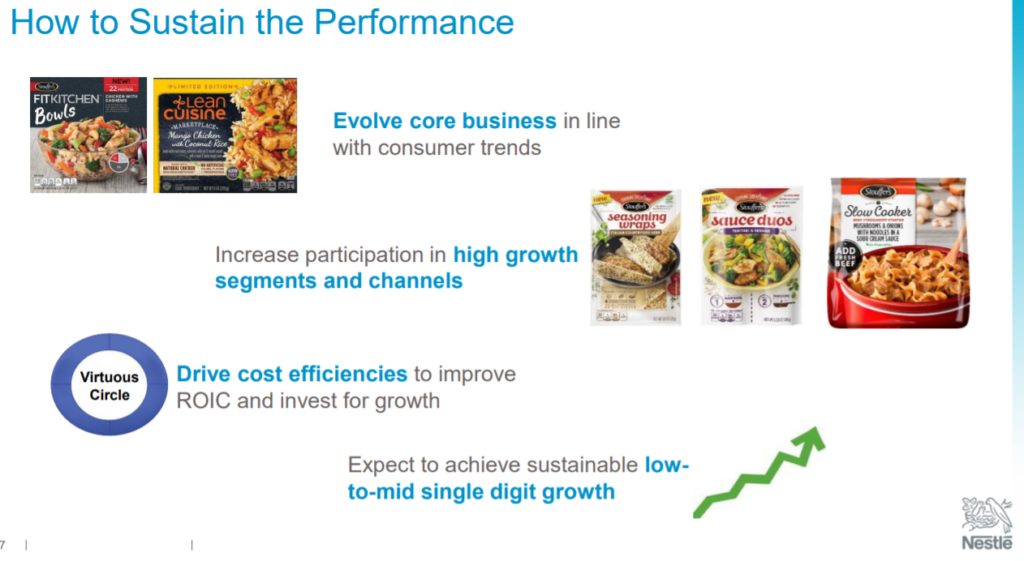
Nestle, Feb. 2017 Investor Presentation
Frozen food has been considered as a stagnant-to-off-trend category for a long time, with sales declining year over year in the US. But as companies debuted better-for-you options, time starved Millennials begun to respond. And so, 43% of Millennial shoppers said they have purchased more frozen foods this year than last year, according to a new report from Acosta.
Growth in frozen meals is in line with several industry trends:
– Convenience drives prepared meals, and frozen meals enable consumers to have a stock of meals to whenever they are out of time/ ideas/ fresh ingredients
– Health and wellness – frozen food enables companies to offer longer shelf life without preservatives; textures are maintained without use of artificial ingredients, and manufacturers are able to offer niche products at a better price point, including vegan options.
– Better value for money – hectic, unpredictable meal consumption leads to a staggering amount of food waste, and frozen food decreases the amount of food spoilage.
– The rise of breakfast – with the search for new breakfast options, consumers are warming up to breakfast sandwiches and other frozen baked goods.
And beyond Nestle, incumbents are reacting to these trends.
ConAgra, identifying the opportunity in offering better for you, time saving frozen products, revamped its frozen portfolio this year: 
Apparently, this bet is paying off.
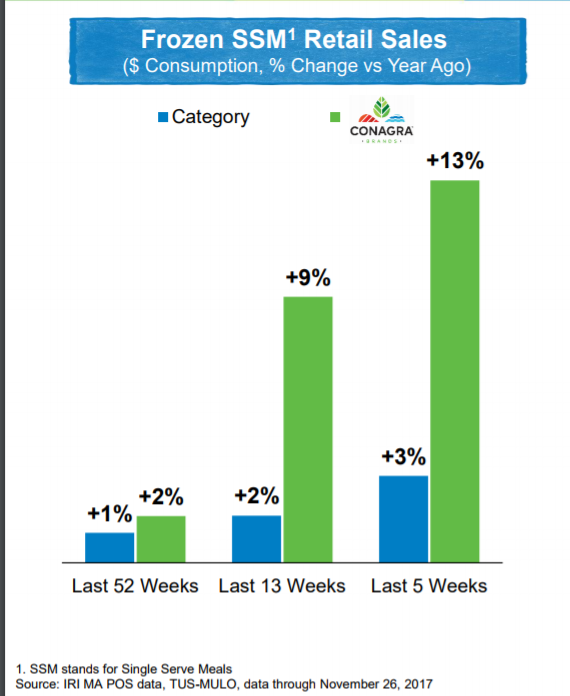
Tyson Foods, owner of leading frozen meal brands such as Jimmy Dean, has reported a +9.2% frozen section increase in the 52 weeks ending 7/9/17, and will further extend its frozen portfolio in 2018, concentration on protein options:
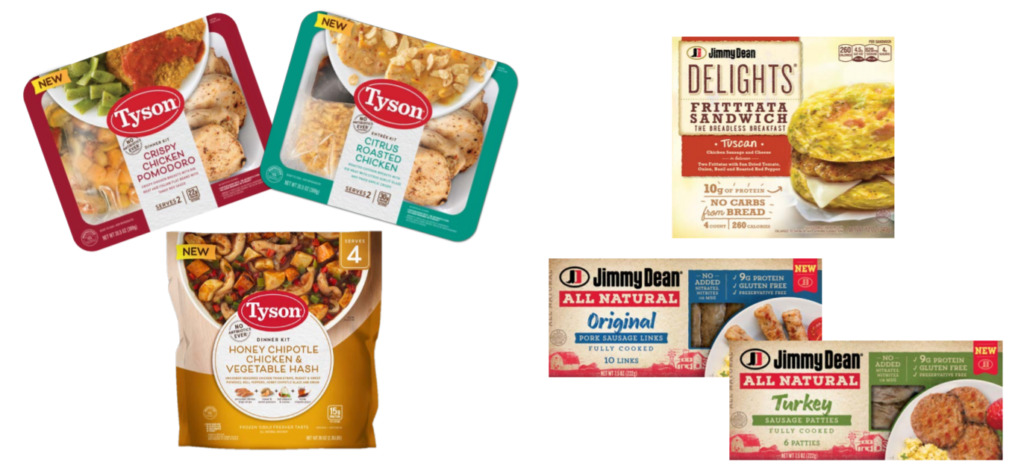
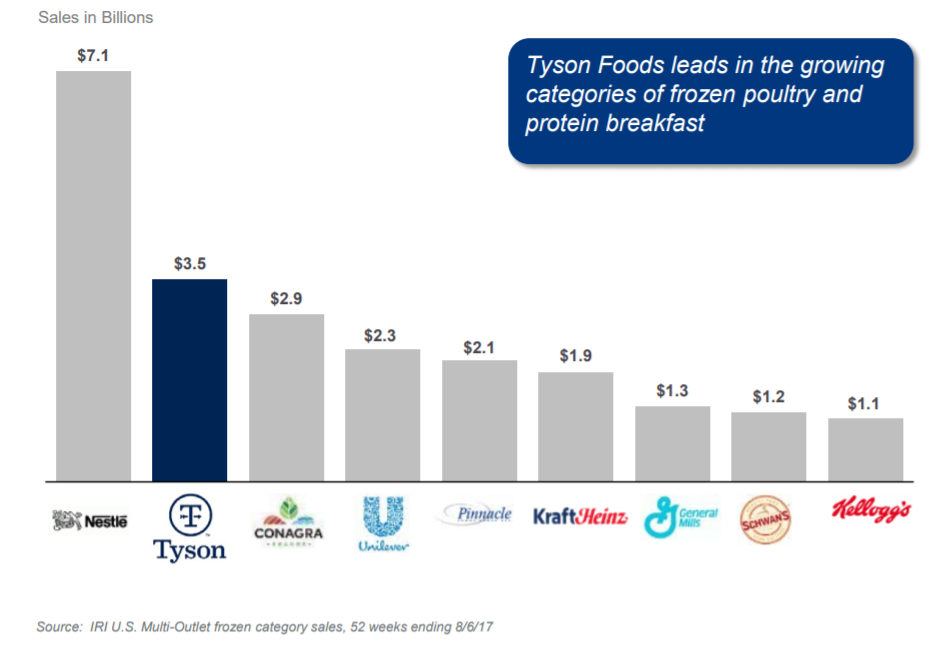
Kellogg’s core frozen brands, Eggo and Morningstar (offering vegan options) experience growth, too:

General Mills announced some indulgence-focused frozen launches:
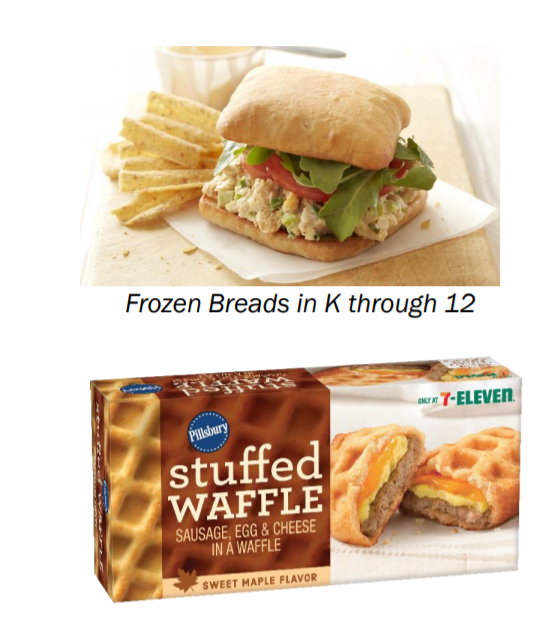
Schwan’s Company, a leading frozen-food company, maker of frozen foods like Tony’s pizza and Mrs. Smith’s pies, has acquired MaMa Rosa’s Pizza LLC in December. At the same time, Schwan’s has reportedly hired an investment bank to weigh options that include a potential sale.
While leading brands are, cleverly, investing in better for you & alternative protein options, it is important to remember that start ups are doing a great job re-inventing and re-creating the industry, through new channels (direct to consumer) and all-natural, fresh, and vegan options.
One company who is probably destined for acquisition is celeb-backed Daily Harvest, who has just secured $43m in a Series B funding round.
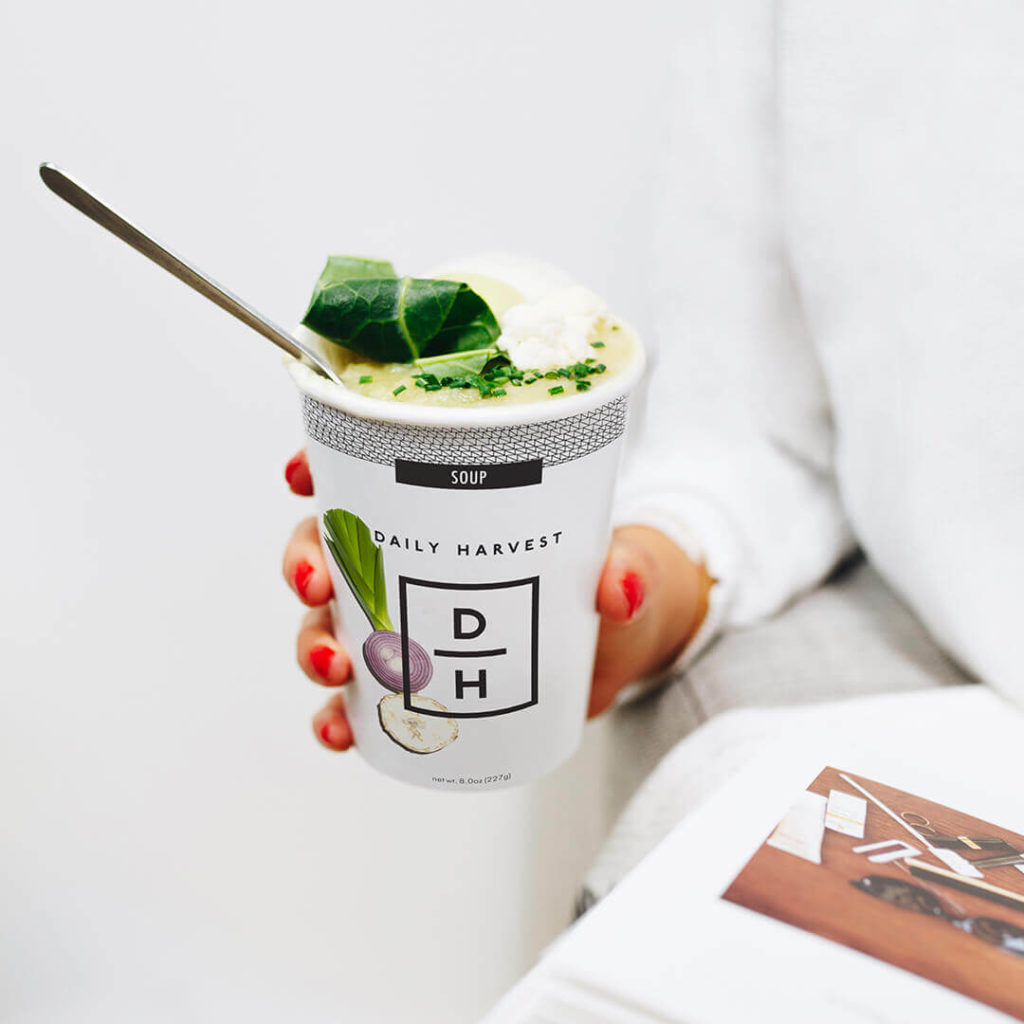
To deal with these changes, and truly create the future of the frozen food industry, North American companies may look to European frozen food models (see: Bofrost’s Door to Door strategy), and to white spaces. Yes, frozen pizza returned to growth – but key areas of opportunity include farm-sourced DTC, and ethnic foods (see: 2018 F&B trends). Nestle, acquiring Sweet Foods and developing Wildscape as a non-branded brand, seems to be covering all bases.
Open. heat. enjoy. repeat. pic.twitter.com/GAn1ugreAA
— Wildscape Food (@WildscapeFood) September 25, 2017

